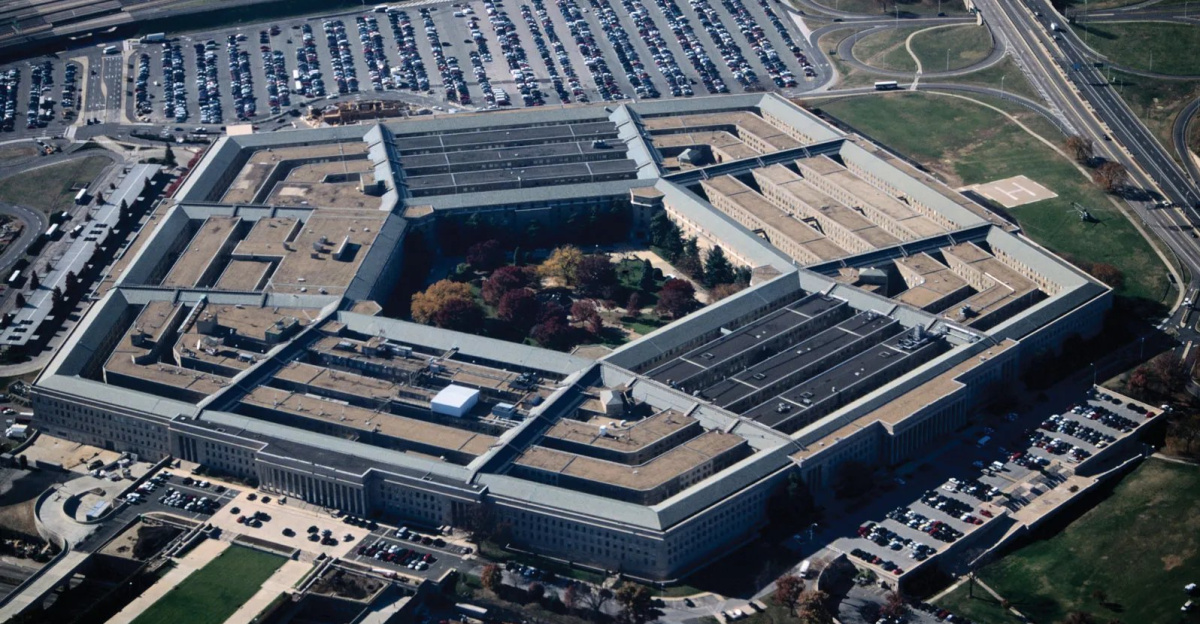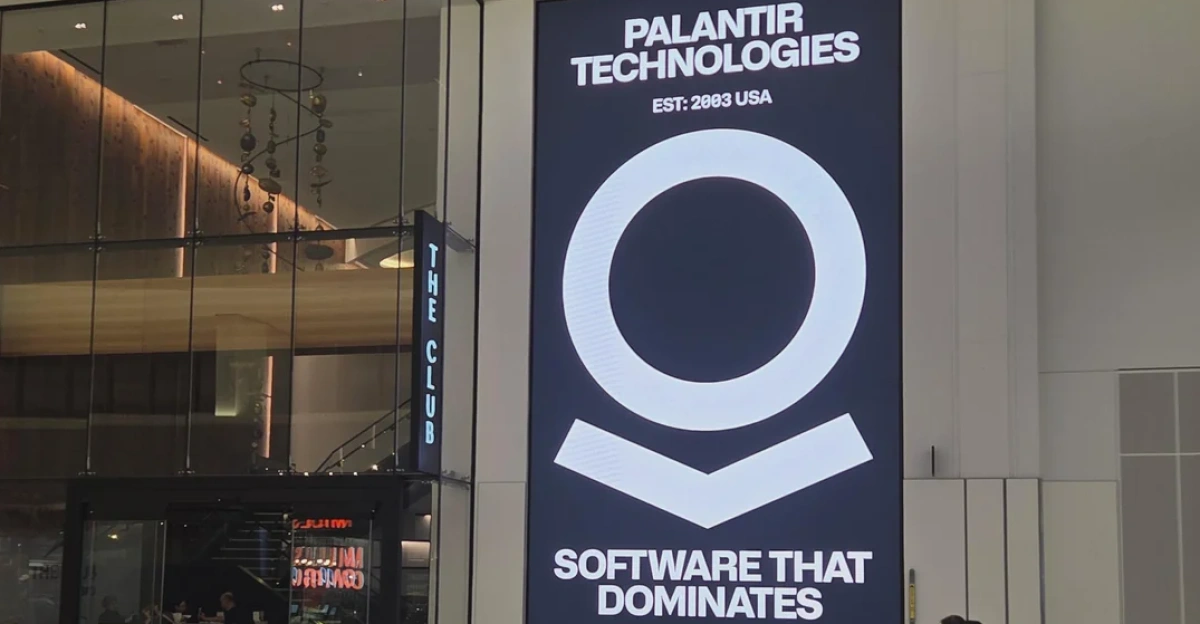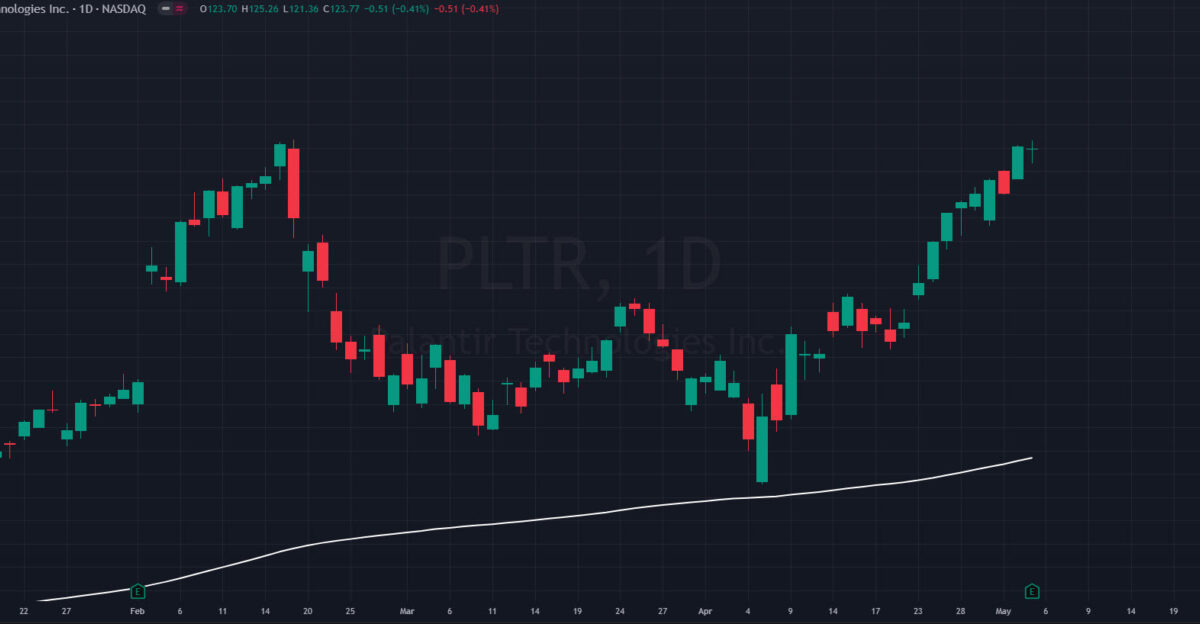
A seismic shift is restructuring how America’s military acquires cutting-edge technology. According to Defense One, data analytics companies that once faced resistance from government agencies are now commanding unprecedented contracts worth billions. This transformation reflects a broader strategic pivot as the Pentagon abandons traditional procurement methods, favoring enterprise-level agreements with commercial software providers. The change signals growing recognition that future warfare will be won through superior data processing and artificial intelligence capabilities, not just advanced weaponry. Washington Technology reports that this marks the most significant procurement reform in decades.
Pentagon’s $1 Trillion Budget Becomes Tech Companies’ Holy Grail

Defense technology spending is exploding across Washington as military leaders scramble to counter threats from China and Russia. The Pentagon’s fiscal year 2026 budget allocates over $250 million specifically for artificial intelligence and autonomy programs, while billions flow toward data integration systems, the Council on Foreign Relations reports. This massive investment surge has created a feeding frenzy among tech companies seeking to capture lucrative government contracts. Defense One indicates that some industry analysts now predict that software companies could eventually challenge traditional defense contractors to dominate military spending.
How a Controversial Startup Became the Government’s Data Obsession

Palantir Technologies emerged from Silicon Valley’s post-9/11 landscape as a data analytics company focused on national security applications. According to company records, co-founded by Peter Thiel and Alex Karp in 2003, the company initially struggled to gain commercial traction while building sophisticated platforms for intelligence agencies. Palantir operated in relative obscurity for years, developing tools like Gotham for defense applications and Foundry for commercial clients. The New Republic reports that the company’s early work with the CIA and FBI established its reputation for handling sensitive government data. However, it also attracted controversy over surveillance and privacy concerns.
Why Army Generals Are Betting Everything on Artificial Intelligence

Military strategists increasingly recognize that artificial intelligence will determine the outcome of future conflicts. Bloomberg reports that recent combat operations in Ukraine and the Middle East have demonstrated how AI-powered systems can provide decisive advantages in target acquisition, logistics optimization, and battlefield coordination. The U.S. Army has aggressively pursued AI capabilities, viewing data-driven decision-making as essential for maintaining technological superiority. Asia Times indicates this urgency has created unprecedented opportunities for companies that can deliver proven AI solutions to government clients at scale.
The Record-Breaking Deal That Changes Everything for Military Tech

On July 31, 2025, the U.S. Army awarded Palantir Technologies an Enterprise Service Agreement valued at up to $10 billion over the next decade. According to official Army announcements, the groundbreaking contract consolidates 75 separate agreements into a single framework, representing the largest deal in Palantir’s 22-year history. Army Chief Information Officer Leo Garciga described the agreement as “a pivotal step in the Army’s commitment to modernizing our capabilities while being fiscally responsible.” UPI reports the contract allows flexible purchasing of Palantir’s AI and data analytics tools without requiring the Army to spend the full $10 billion.
From South Korea to Germany: How One Contract Reshapes Global Military Operations

The massive contract will reshape military operations across key strategic regions, particularly the Indo-Pacific, where tensions with China continue escalating. Army units stationed in South Korea, Japan, and Guam will gain access to enhanced battlefield intelligence systems powered by Palantir’s technology, Caliber reports. The agreement also strengthens NATO interoperability, as allied forces increasingly rely on shared data platforms for coordinated operations. The Defense Post indicates that European command centers are expected to integrate Palantir’s systems within 18 months, creating a unified intelligence network spanning multiple continents and time zones.
What Soldiers Really Think About Their New AI-Powered War Tools

Field commanders report dramatic improvements in decision-making speed when using AI-powered analytics systems during training exercises. “The technology allows us to process intelligence from multiple sources simultaneously and identify threats that would have taken hours to detect manually,” one Army colonel involved in Palantir’s pilot programs told military publications. Soldiers operating the company’s TITAN targeting system can now coordinate drone strikes, artillery support, and troop movements through a single interface, according to MEPEI analysis. The human impact extends beyond efficiency gains, as reduced cognitive load allows military personnel to focus on strategic thinking rather than data processing tasks.
Microsoft and Amazon Just Lost the Battle for the Pentagon’s Future

The Army’s decision to consolidate contracts around Palantir has sent shockwaves through the defense technology sector, as competitors rush to secure their own enterprise agreements. Industry reports suggest that Microsoft and Amazon, which previously competed for the Pentagon’s cloud computing contracts, now face a formidable new rival in AI-powered analytics. OpenAI recently secured a $200 million defense contract, but its annual value pales compared to Palantir’s potential $1 billion yearly revenue stream, Quantilus reports. Seeking Alpha indicates that traditional defense contractors like Lockheed Martin and Raytheon are also scrambling to develop comparable software capabilities or risk losing market share to Silicon Valley upstarts.
Every Military Branch Wants What the Army Just Got

Pentagon officials indicate that Palantir’s enterprise agreement represents a new template for government software procurement across all military branches. Defense Scoop reports that the Navy and Air Force are reportedly developing similar consolidated contracts with major technology providers, potentially worth tens of billions of dollars combined. This shift from traditional project-based contracting could fundamentally alter how the defense industry operates, favoring companies that can provide comprehensive software platforms over those offering specialized tools. GovCon Wire suggests that industry analysts predict that enterprise agreements could account for 30% of all Pentagon technology spending within five years.
The Dangerous Secret Hidden in This $10 Billion Success Story

Beneath the efficiency gains and cost savings lies a troubling new reality: the U.S. military increasingly depends on a single private company for critical intelligence operations. Palantir now processes sensitive data for seven federal agencies and has deeply embedded its software into Army operations that switching providers would require years of costly transitions, WIRED reports. This vendor lock-in raises national security concerns about what happens if Palantir faces financial difficulties, suffers cyberattacks, or its executives make decisions that conflict with government interests. The New Republic notes that the company’s $360 billion market valuation also means taxpayers effectively subsidize one of the world’s most valuable tech firms.
Congress Starts Asking Uncomfortable Questions About Palantir’s Pentagon Takeover

Key lawmakers are expressing growing unease about the Pentagon’s increasing reliance on Palantir and other Silicon Valley firms for national security operations. Representative concerns focus on the lack of competitive bidding for enterprise agreements and the potential for defense contractors to hold the military hostage through proprietary software systems, congressional sources indicate. Some members of Congress have called for hearings to examine whether these massive contracts provide adequate value for taxpayers and appropriate safeguards against vendor abuse. Privacy International reports that the debate reflects broader tensions about the militarization of Silicon Valley and the blurring lines between private companies and government agencies.
Alex Karp’s Radical Plan to Merge Silicon Valley with the War Machine

Palantir CEO Alex Karp has emerged as one of the most influential voices advocating for deeper integration between Silicon Valley and the defense establishment. His recent public statements argue that American technological superiority depends on closer collaboration between private companies and government agencies, Fortune reports. Karp’s transformation from Silicon Valley outsider to Pentagon insider reflects broader changes in how tech executives view their relationship with the military. AOL Finance indicates his stated mission of providing “an unfair advantage to the noble warriors of the West” has resonated with defense officials pursuing a technological edge over adversaries.
Wall Street Goes Wild as Palantir Stock Hits Astronomical Heights

Palantir’s stock price has soared over 110% in 2025 alone, driven by investor enthusiasm about the company’s expanding government contracts and commercial AI platform. The company’s market capitalization now exceeds $360 billion, making it more valuable than many traditional defense contractors combined, despite generating a fraction of their revenue, Investors.com reports. Wall Street analysts project continued growth as Palantir leverages its government relationships to expand into commercial markets. However, some warn that the stock’s valuation has outpaced the company’s actual business performance. Yahoo Finance suggests the disconnect between financial metrics and stock price raises questions about whether investor expectations can be sustained long-term.
Defense Veterans Warn Palantir’s Promises Might Be Too Good to Be True

Despite Palantir’s financial success, some defense industry veterans question whether the company can deliver on its ambitious promises as it scales operations. Former Pentagon officials worry that Palantir’s rapid growth could compromise the quality and security of its software platforms, particularly as the company expands beyond its core government customer base, Breaking Defense reports. Technical experts also point to potential integration challenges as the Army attempts to consolidate 75 different contracts under a single enterprise agreement. Asia Times indicates these concerns reflect broader industry skepticism about whether Silicon Valley’s rapid development culture is compatible with military requirements for reliability and security.
Is America’s Military Creating Its Own Tech Monopoly Problem?

As Palantir’s influence expands throughout the Pentagon and beyond, fundamental questions emerge about the future of American defense capabilities. Defense analysts wonder whether the military’s growing dependence on private software companies will enhance national security or create new vulnerabilities that adversaries could exploit. The traditional military-industrial complex of aerospace manufacturers and weapons producers is giving way to a new model dominated by data analytics and artificial intelligence firms, Inter-economics reports. Reaching Critical Will suggests that whether this transformation strengthens or weakens America’s defense posture may not become clear until these systems face their first real test in a major conflict.






